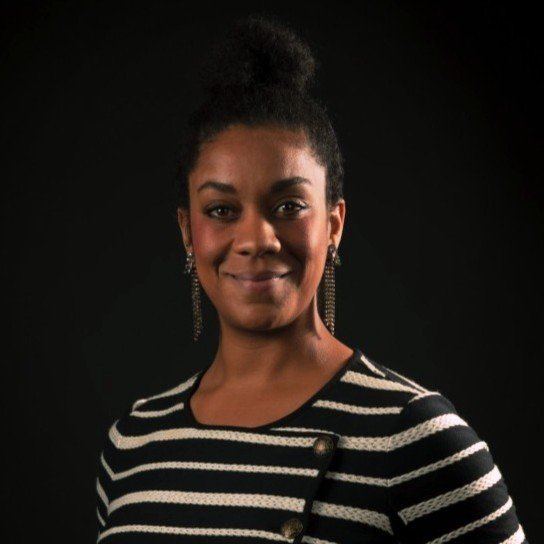The Innovation Imperative: Inclusivity is Non-Negotiable—An Interview with Rachel Moore
“10 years after we first crossed paths, I'm thrilled to work with Rachel Moore again. She’s a passionate advocate for DE&I, and an extremely talented workshop facilitator. Rachel's extensive work to help create inclusive workplaces makes her an invaluable asset to The Navigator Collective’s mission.”
—Paul Sears, Founder & CEO, The Navigator Collective
Paul Sears: Rachel, can you start by telling us a little bit about your background, and what fuels your passion for DE&I?
Rachel Moore: Sure, Paul! I feel like, looking back, I’ve seen so many examples of what not to do in the workplace, and it has made me want to create better environments where everyone feels understood and valued. The great thing, it’s proven to also make the business more successful. I’ve worked with a lot of brands over the years: Walmart, Warner Brothers, Del Taco, Belkin. Yes, it was definitely challenging, but I’ve been able to help people see themselves and each other better, get in there and really do the work to create more inclusive environments. When it happens, it’s amazing – people completely change the way they work, in a good way. This journey eventually led me to commit myself to DE&I work and group facilitation, both of which I find incredibly rewarding.
Paul: Why did you join The Navigator Collective?
Rachel: The Navigator Collective has a really inclusive approach to brainstorming and problem-solving, that really resonated with me. It’s about bringing new people into the creative process, and creating a compassionate and supportive environment where newbies can thrive. I felt like that aligned perfectly with my values and goals.
Paul: Why do you feel psychological safety is important to innovation?
Rachel: Psychological safety is crucial because it allows all people to come to the table and share their ideas freely without fear of judgment. When team members feel like they can take those leaps and have their ideas be welcomed, they are more likely to contribute to brainstorms and creative sessions, which gives the company more ideas to choose from at the end of the day.
Paul: How do DE&I principles contribute to creating a psychologically safe environment?
Rachel: Inclusivity focuses on making sure everyone's ideas and input are heard and valued, which helps create a safe space for risk-taking. When people feel included, they are more likely to lean-in fully. It's about building trust and respect, making sure everyone knows their contributions are welcome and they matter. In workshops, facilitators need to focus on creating safe spaces with structure, stability, clear guidelines, and active reinforcement of inclusive values. It can be a lot of work, but you get better at it with practice.
Paul: How does inclusivity help unleash the collective intelligence of an organization?
Rachel: Inclusivity is key to tapping into the full potential of an organization. I frequently talk to clients about a study from MIT that found groups with high collective intelligence performed much better at things like problem-solving, decision-making and innovation. Those high-performing groups brought a lot of awareness, sensitivity and empathy to work, and no surprise they collaborated very well with each other. When everyone feels valued, they are much more likely to share their craziest ideas, which is crucial to innovation.
Paul: Can you explain how inclusivity and group intelligence work together to improve business outcomes?
Rachel: Putting inclusivity principles into practice are a key step in unlocking that collective intelligence. Research shows that companies with inclusive cultures are 1.7 times more likely to be innovation leaders with 2.3 times higher cash flow per employee. If we want to see that growth, we have to create environments where everyone's voice is heard, and the collective intelligence comes out.
Paul: What specifically can facilitators do to make workshops inclusive?
Rachel: Facilitators play a crucial role in creating inclusive workshops. Here are some practical steps. First, I’ve always believed (and I love that you do this in the Navigator workshops as well), in having a facilitator for every small group. It helps so much to keep people engaged and accountable. Making sure the whole environment is a really welcoming is key. Setting clear guidelines and ground rules for what respectful communication really looks like, and then holding people accountable to those ground rules. It’s also important to accommodate different learning and communication styles. Gamification can also steward inclusivity by adding some fun, which helps us get to know each other better, and open people’s minds to new things. I could go on, but these are the biggest ones I think.
Paul: What are some tips for handling difficult situations, like microaggressions, during workshops?
Rachel: It's so important to address conflicts with empathy on all sides. We need to handle microaggressions promptly, and provide continuous support to everyone at the table. Take a well-meaning participant with ADHD, who interrupts another person. They may not actually be able to interpret nonverbal cues that their behavior was seen as a microaggression. The right answer is not to exclude either person. We want to help both of them have more self-awareness, that interruption creates exclusion but also that neurodivergent person needs a bit of accommodation. We have to take that compassionate approach, because we don’t always know why something is happening.
One practical step I’ve used is placing a prop on the table. Maybe it’s a sheet of paper, or a mouse pad. If someone feels excluded, they place their hand on the prop, which helps ensure a slightly bigger non-verbal cue that’s more easily seen. It’s agreed-on in the upfront ground rules, so everyone’s looking for it. This surfaces the issue and creates self-awareness, without causing a confrontation, which helps create mutual respect.
Start by understanding your audience, do some research and create an empathy map to better understand who is in the room. Do a test run of your workshop while putting yourself in their shoes, do you see areas where you can be more inclusive?
I’ve really enjoyed some of the recent Navigator training on Cognitive Behavior Therapy and differential reinforcement. By selectively reinforcing desired behaviors and providing constructive feedback, we can help people learn from mistakes in a way that’s supportive and not punitive.
Paul: What advice would you give to someone who wants to be more inclusive in their own workplace, but might feel overwhelmed by the amount of DE&I-related information out there?
Rachel: Focus on creating an open and supportive environment. Simple steps, like active listening and setting inclusive ground rules at the start, can make a big difference. Celebrate small victories and learn from setbacks. Providing a variety of ways to take in and respond to the content is a way to ensure all are included. However, we should also ask for feedback in these areas. For example, you can send a survey asking about the variety of communication channels you offered. Were there enough, did participants see other opportunities that you weren't including? Pay attention to that feedback and make adjustments.
Paul: Thank you so much Rachel, for sharing your insights and expertise. Inclusivity is clearly a powerful innovation tool. The Navigator Collective is fortunate to have such a passionate advocate and brilliant mind leading our DE&I efforts. Thank you!
Rachel Moore is a dedicated Diversity, Equity, and Inclusion Practitioner. With a background in DE&I and marketing initiatives, working with companies like Walmart, Warner Brothers, Belkin, Del Taco, and LA Metro Bike Share, Rachel has a wealth of experience in facilitating workshops that help people create more inclusive workplaces. Rachel's work is driven by her passion for understanding and valuing diverse perspectives. She loves biking and is a passionate rose gardener living in Los Angeles, and holds a BA in Marketing and Advertising from Webster University.





